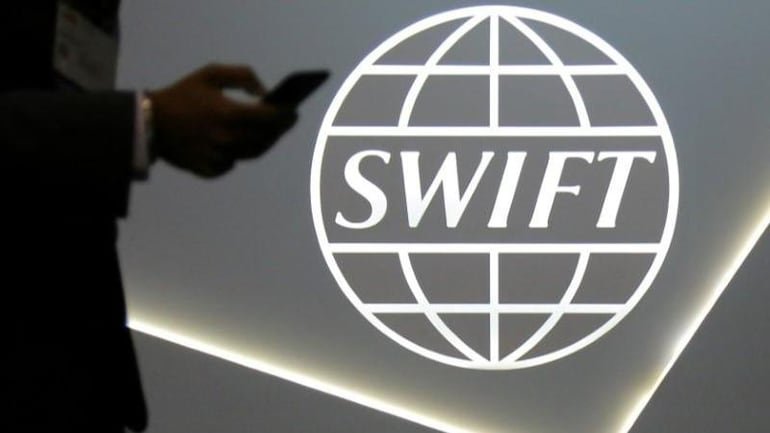Brussels, 28 February 2022 (TDI): The SWIFT international payments system said on Saturday it was preparing to implement Western countries’ new actions targeting Russian banks in the coming days.
“We are engaging with European authorities to understand the details of the entities that will be subject to the new measures and we are preparing to comply upon legal instruction,” it said in an announcement.
The Society for Worldwide Interbank Financial Telecommunication (SWIFT) ensures quick cross-border payments which have turned out as the key instrument to finance global trade.
Russian banks deprived of access to SWIFT will find it tougher to communicate with others globally, even in friendly states such as China, slowing trade and making transactions higher.
But the partners, who also promised sanctions on Russia’s Central Bank to limit its capability to back the rouble, have not yet shared which banks would be a target.
If the list included the main Russian banks, such as Gazprombank, Sberbank, and VTB, it would be “an absolutely huge deal”. Sberbank and VTB have previously stated that they are ready for any developments.
How could the SWIFT ban affect Russia?
Russia will not get any access to economic markets across the world. The ban would make it tougher for Russian companies and individuals to pay for imports and receive cash for exports.
America has succeeded previously in persuading the SWIFT system to kick out Iran, over its nuclear program. But expelling Russia out of SWIFT could also upset other economies.
Allies on both sides of the Atlantic also gauged the SWIFT decision in 2014, when Russia invaded and occupied Ukraine’s Crimea. Russia might declare that ousting it out of SWIFT would be equivalent to a declaration of war.
The partners have been criticized ever after for replying too weakly to Russia’s 2014 hostility shelved the idea back then. Since then, Russia has tried to develop its own financial transfer system, with limited achievement.
Damaging blow
The effect is possible to be devastating for the Russian economy and markets. If the sanctions are likely to hit the rouble when markets open on Monday, said Sergey Aleksashenko, a former Deputy Chairman of the Russian Central Bank.
American sanctions against a handful of Russians took direct aim at the massive majority of about $46 billion worth of daily foreign exchange. But these sanctions targeted approximately 80% of all banking reserves in Russia.
As an alternate to SWIFT, Russia has built its personal network, the System for Transfer of Financial Messages (SPFS). It sent about 2 million messages in 2020, or about a 5th of Russian internal traffic, says the Central Bank, which aims to up this share to 30 percent in 2023.
Economic Weapon
The verdict to block Russian banks from SWIFT has been tense. Ukraine advised European countries to kick Russia off the payments system and was supported by nations such as Britain and Germany.
Earlier on Saturday, Germany, which has the EU’s main trade flows with Russia, softened its stance and proposed that it was observed as a way to remove Russia from SWIFT.
Transnationals with large capital operations and banks with SWIFT access could become the new hubs of economic transactions out of Russia.















